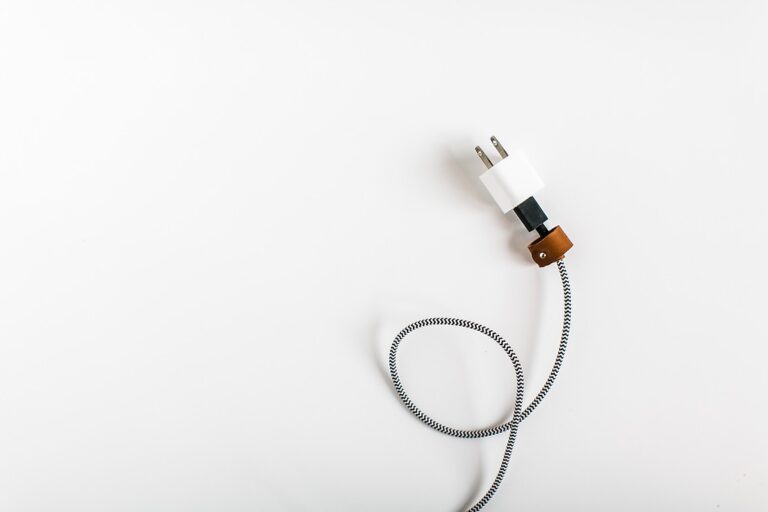By Rejan Magee
Do you ever feel like you’re doing everything for next to no results? You’ve committed to change, you’ve implemented new strategies, and you’ve put in the work – yet you don’t seem to be any closer to your goals. That can be frustrating. In fact, it’s downright discouraging.
If this sounds like you – you’re in the right place. We’re going to go over the top 5 reasons why you may not be seeing the results you were aiming for with your health & nutrition goals. Plus, we’ll tell you exactly how you can avoid or manage these common issues so that you can start feeling your best.
It’s important to note that your health and nutrition is so much more than just what you’re eating.
Of course, that’s a big part of it – but many other factors come into play as well. Your mindset around nutrition, how and when you eat, and underlying conditions or imbalances can set the stage for success or “failure”.
At Habit Lifestyle Medicine, we don’t like to use the word failure, as we believe each step of your health journey is a learning opportunity. With these learning opportunities comes experience, knowledge, and empowerment to move onto the next step and get that much closer to reaching your goals.
So, if you’re ready to dive deeper into the reasons why you’ve been unable to reach your nutrition goals – read on.
1. You have a poor relationship with food
This is often a root issue we see with most of our nutrition clients. They’re seemingly eating healthy foods, exercising, and taking their supplements. So what’s wrong?
This can look different for everyone, but the typical scenarios are:
-
eating when rushed
-
eating on the go
-
eating really fast in general
-
eating when stressed or upset
-
emotional binge eating, fasting & binging
-
eating foods that are deemed healthy even though they cause symptoms
-
overeating or under-eating
-
eating the same foods every day/week
-
or in extreme cases – orthorexia (Orthorexia, or orthorexia nervosa, is an eating disorder that involves an unhealthy obsession with healthy eating. Unlike other eating disorders, orthorexia mostly revolves around food quality, not quantity).
Why is this detrimental to your nutrition goals?
Firstly, all of these things can negatively impact your digestive function. Gut health is at the root of all health, so poor gut health leads to issues in other areas of your health. It can mess with your blood sugar levels, metabolism, nutrient absorption, hormonal imbalances, and more – all of which can affect weight loss/gain as well.
Second, a lot of these scenarios result in a surplus of daily calories – which is not the end of the world, but if it’s a habit or regular occurrence – it will lead to weight gain – regardless if you are eating “healthy” foods or not.
One of the first things we recommend to clients to help them strengthen their relationship with food is to chew better.
You might think you chew your food well already, but guaranteed it’s not well enough. A good rule of thumb is to count your chews for each bite – with the aim being 30-50 chews per bite. If that sounds ridiculous, it’s because you’re eating way too fast.
Sit down, make sure you’re in a good headspace, without distractions (i.e. phones or TV), and preferably with a home-cooked meal. Take the time to really enjoy your food. Food is meant to nourish us, yet we are very disconnected from this idea.

We typically are only eating for pleasure or because we have to. Granted, these are both acceptable reasons for eating as well – but as long as we are also eating for nourishment.
The Takeaway Action…
Chew your food well, to a pulp, and notice the textures, flavours, and how it can serve your health. This helps you recognize when you are properly full, so you are less likely to overeat. It also aids digestion, can help balance blood sugar, and brings more enjoyment to the meal.
2. You’re Obsessing
Do you count your calories, macros, weigh your food, etc. on a regular basis? Though this can serve as a great tool for those who are brand new to eating healthy and wanting to lose weight, it’s definitely not a long-term solution and can further damage an already poor relationship with food.
Once you have a good grasp on what reasonable portion sizes are and how much of each macronutrient you typically require in a day, you should be able to eyeball these things and skip the measuring altogether.
Do you weigh yourself daily, only to be disappointed when you’ve gained a pound or two yet you were doing so good? The truth of the matter is that weight fluctuates. It’s normal and should be expected.
This is especially true if you are a woman, as hormonal changes throughout the month and definitely during menopause can cause your weight to go up or down without you changing anything.
If you’re not eliminating properly or regularly, this will add extra weight to the scale, as will inflammation and water retention. Also, if you’re exercising more than usual – remember that muscle weighs more than fat!
If you’re someone who has to weigh themselves, do it once a month. That way, if you’re on track with your health goals – you should see that scale budge (in the direction you want it to) in a healthier way.
You can also work to reduce those other factors that may be causing extra weight by drinking more water, sweating more, eating more fibre, and working with a practitioner to assess any underlying issues which may be contributing to hormonal imbalances or digestive problems. Which brings us to our next point…
3. You May Have Underlying Imbalances or Disorders
There are several health issues that could be contributing to your inability to lose weight or feel better overall. The top things we see with our clients are gut problems, thyroid irregularities, hormonal imbalances, adrenal fatigue, or heavy metal/mold toxicity.
Many of these things can be determined through analysis of symptoms, but some might need extra testing done. The thing is, all of these issues are connected – so addressing one typically starts to resolve others if they are also present.
A huge contributing factor for these is stress. It manifests in so many different ways, and we are all unique in how we handle it. But what we all share in this regard is how it affects our digestive systems, immune function, hormones, and energy levels.
Getting your stress under control, managing it, and seeking out help in doing so is critical. There are many special diets to reverse these issues, and plenty of nourishing foods to support your bodily systems during and once you’ve recovered.
It’s important to work with a medical or health professional to determine any imbalances or disorders and what the right protocol for you is.
4. You’re Still Drinking Alcohol
You may immediately think about the “empty calories” that many alcoholic beverages provide, and though that is a hugepart of the problem – there is more to it than that. So first, on the empty calories thing – this means that alcohol provides your body with calories (and depending on the drink, this could be a lot) yet little to no nutrient value.
If you’re drinking beer, sugary drinks, or mixed drinks – the empty calorie case is definitely going to apply here.
…So you’re then thinking you’re in the clear if you drink all those sugar-free beverages that are so popular right now, right? Not quite…
First of all, alcohol is used as a primary source of fuel. That means that all that glucose or fat your body would normally burn for energy is going to sit untouched (and end up as fat tissue) while your body uses the alcohol.
Secondly, alcohol is terrible for your organs. Liver, kidneys, gut, skin, you name it. When your liver is burdened, it dampens its ability to metabolize and store carbs and fats.
These changes can affect the way your body stores energy from food and make it hard to lose weight. It can also affect your moods – think anxiety and depression, blood sugar irregularities, and also hormonal imbalances – which can all lead to unhealthy cravings, overeating, and have been linked to other metabolic disorders.
5. You’re Not Eating Enough Protein & Fat
Fat gets a bad reputation, but the truth is we absolutely need it for so many of our bodily functions. So, if you’re still buying into the “low-fat” options at the grocery store, or avoiding fat because of it’s higher calorie content – it’s time to stop!
Not only does fat keep us full and satiated, but it also helps to balance our blood sugar levels and absorb specific nutrients important for our health. Many of those “fat-free” or “low-fat” products will use extra sugar or carbohydrates in place of the missing fat in order for it to be palatable.
Without the fat, those sugars are quickly processed by the body and lead to blood sugar/insulin spikes and over time this can result in metabolic conditions.
Fat can actually be used as fuel, and some even say it’s our body’s preferred source of fuel over glucose. Protein is also much slower digested than carbohydrates, and so it keeps you full for longer, stabilizes blood sugar levels, and decreases unhealthy cravings.
If you notice that you have sugar cravings or are getting hungry up to 2 hours after eating a meal – chances are you’re not consuming enough protein and fat. Fun fact: research shows that low protein in the diet results in up to 90% of extra calories consumed stored as fat! You may also lose muscle mass with not enough protein in the diet.
There are lots of other reasons why you might be struggling to lose weight or reach your health goals, but these are some of our most commonly seen scenarios. If this is something you are battling with – reach out! Our team of qualified health professionals helps people just like you every day overcome these obstacles and more.
Even better…grab our FREE resource guide: The Six Key Habits to Optimal Health! Here is the link for this awesome tool… The Six Key Habits to Optimize Your Health




